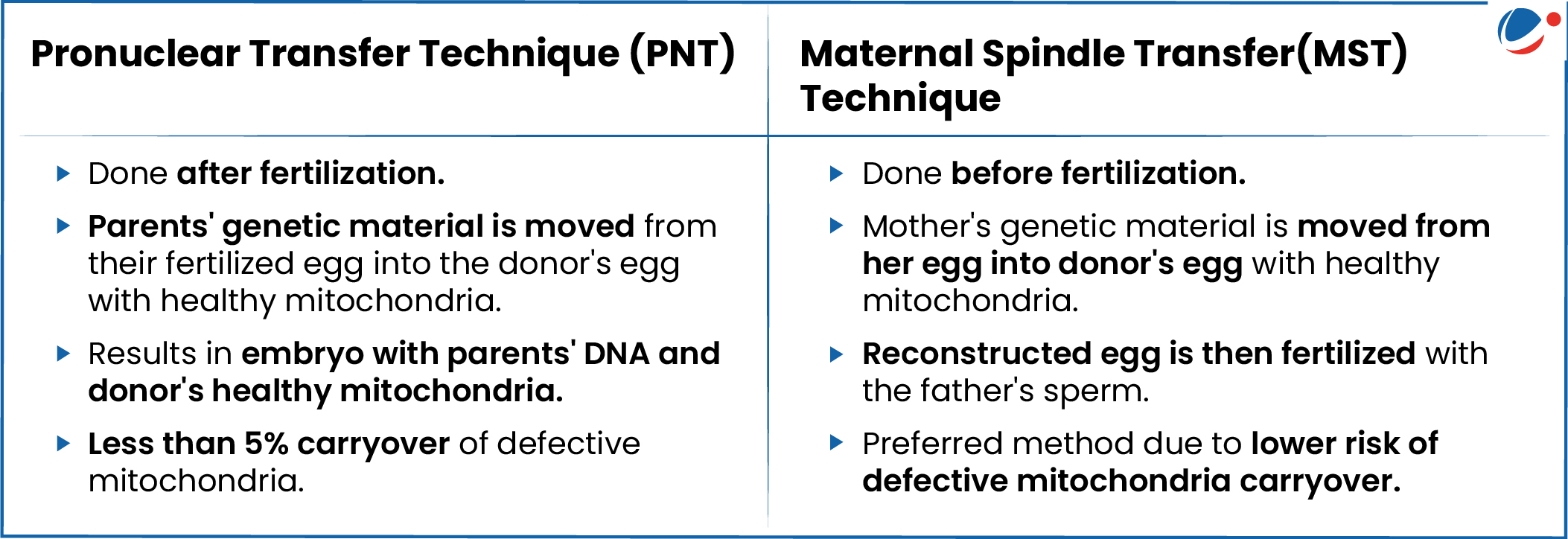A new clinical trial successfully protected eight babies, at high risk of inheriting ‘mitochondrial diseases’ from their moms, through mitochondrial donation or Mitochondrial Replacement Therapy (MRT)
What is Mitochondrial Disease?
- Mitochondria: They are tiny "power plants" inside almost every cell in our body. They generate more than 90% of the energy in cells.
- Mitochondrial DNA: Mitochondria have their own DNA, distinct from nuclear DNA. Affects energy production but not physical characteristics.
- Mitochondrial Disease: When the mitochondria are not working properly, cells don’t have enough energy and they begin to die. When too many cells die, whole organ systems can fail, which can be life-threatening.
- Mitochondrial diseases are exclusively inherited from the child's mother.
About Mitochondrial donation or Mitochondrial Replacement Therapy (MRT)
- Definition of MRT: It is a new form of reproductive invitro fertilization (IVF) which works on the principle of replacing a women's abnormal mitochondrial DNA (mt-DNA) with the donor's healthy one.
- In MRT an embryo contains:
- Nuclear DNA from a man and a woman (the prospective mother)
- Mitochondria in an egg donated by another woman (the mitochondrial donor).
- Since, the child born will have three distinct genetic materials, it is called a “Three-Parent Baby”.
- Techniques: MRT include different techniques like Maternal Spindles Transfer (ST), Pronuclear Transfer (PNT).




